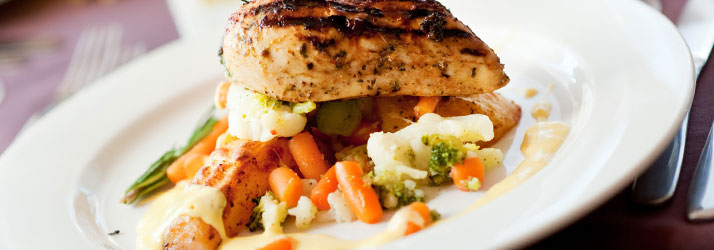Tips on Mastering Portion Control
Tips on Mastering Portion Control

With so much talk about ingredients and chemicals and sinister marketing campaigns, it’s easy to lose sight of the fact that portion sizes for many foods these days are huge. Even without the whole “supersizing” element, it is easy to eat far more than necessary and turbo boost your caloric intake. Even if you are eating foods that aren’t particularly unhealthy, eating too much will create a “calories in, calories out” situation where you’re not burning off the calories you are consuming. If you have questions about nutrition, contact our weight loss team.
If They Serve It; We Will Eat
Studies conducted by Brown University showed that volunteers would consistently eat more if they were given more. This included regular meals and snacks. In a snack study, one group of students received snacks that totaled 4,350 calories and another got snacks totaling 8,750 calories.
Each group was told to eat as much as they wanted and not eat any other snacks over a three-day period. In the end, the group that had the snacks totaling 8,750 calories consumed 81 percent more calories. Basically, in the majority of cases people will eat more food, if more food is presented to them.
Into the Time Machine
One way to become a master of portion control is to follow portion control metrics from our past, before they were all increased or disregarded altogether. The American Diabetes Association offers portion guidelines that are more in line with the way things used to be. If you can follow these tips, you’ll probably see your waistline start shrinking.
A serving of meat, chicken or fish that is 3 oz. is about the size of a deck of cards. A ½-cup serving of potatoes or canned fruit is roughly the size of half a tennis ball. If you want a 1 oz. serving of cheese it should be the size of your thumb, and a one-cup serving of fresh greens, milk or yogurt is the size of your fist. If you do end up in a situation where the portions are larger than they should be, portion the meal yourself and bring the rest home for later, or split it with someone else.
Helpful Tips to Smaller Portions
You can reduce the amount you eat and lose weight by following a few simple steps. The first is to put down your spoon or fork after each mouthful of food. This will stop you from shoveling it in, like so many of us are prone to do. Next, chew your food slowly and thoroughly, at least 20 to 25 times. And the most important, when you start to feel even the slightest bit full, stop eating. If you follow these tips, your portions will shrink and so will your waistline.
If your ready to get started with a weight loss program - give our team a call today!
OFFICE HOURS
Monday
10:00am - 5:00pm
Tuesday
10:00am - 5:00pm
Wednesday
10:00am - 5:00pm
Thursday
10:00am - 5:00pm
Friday
10:00am - 3:00pm
Saturday
Closed
CORPORATE HEADQUARTERS
Optimal Body
2227 Bel Pre Road #482
Silver Spring, MD 20906
(301) 347-6413



